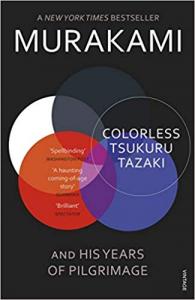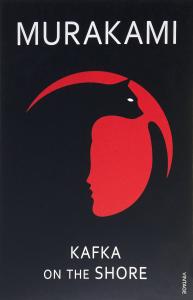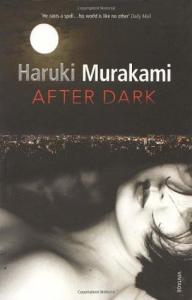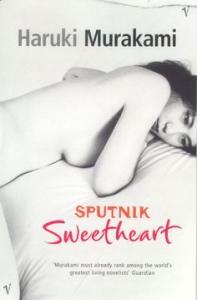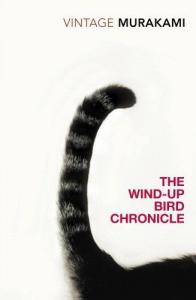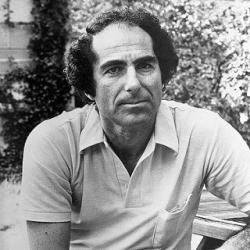Part 3) Masterpieces
6) Colorless Tsukuru Tazaki and His Years of Pilgrimage (2013)
Back then in high school, Tsukuru Tazaki had a circle of very close friends, each of whom had a surname that corresponded with a color, thus they were nicknamed after those colors: Kuro or black, Shiro or white, Aka or red, and Ao or blue. Tazaki was the colorless one. When he moves to Tokyo to study in a university, his friends inexplicably and suddenly cut him off, and this causes him to undergo a period of deep depression. Now, 36 years old, he’s determined to go back to his hometown and discover what happened.
I thought that 1Q84 was a bit lackluster in comparison with Murakami’s oeuvre, but I’m glad to see in this fantastic book that he hasn’t lost his mojo, and has cranked out another literary masterpiece, proving that he hasn’t slowed down in his later career. This book deals with insecurity, loss, and loneliness in a really moving manner, and I love the fact that the book deals mainly with friendship and not romantic love as it is a much more neglected topic in literature. The book is heartbreaking and poetic, and certainly belongs with Murakami’s best. Any person who has lost friends will deeply connect with this book.
5) Kafka on the Shore (2002)
A boy escapes from home on a journey to a far away town in Japan to be employed in a peculiar library, and an old illiterate man who can talk to cats sets on a journey too, accompanied by a truck driver. They do not know that all of them are on a mission to close down a portal to another world.
The thing about Kafka on the Shore is that if you sit down and summarize the story from the beginning to the end to someone who has not read the novel, they’ll probably think it’s an extremely bizarre and convoluted story with a lot of disturbing and “edgy” elements (murder, incest, rape fantasies, abusive parents, war crimes, etc). But when you read the actual novel everything seems (1) natural and (2) oddly innocent, and despite dealing with some very heavy themes, the heart of the novel is poetic and soft. This novel is nothing short of a literary miracle: only a masterful writer can create such a coherent and tender book out of such weird materials.
4) Norwegian Wood (1987)
Toru Watanabe is a university student who goes through life with little conviction and no certain path before him. He is in love with the girlfriend of his dead best friend, Naoko, who suffers from depression and extreme bouts of grief. He also meets Midori Kobayashi, an outgoing and assertive woman who is dealing with her own griefs. Toru’s life becomes complicated as he tries to balance his life around these relationships.
Norwegian Wood is the novel that made Murakami famous, and it’s hands down his saddest novel. It’s also an absolute masterpiece on multiple levels: the effective representation of grief, the tragedy of ordinary people caught in extraordinary emotions, the subtle political and social backdrop, and most of all the characters: three lovely, sympathetic, decent people with problems beyond them, with complicated emotions, whose pain reverberates through every line of the novel. One of the best love stories of all time.
3) After Dark (2004)
The story of sleepless wanderers during one night in Tokyo, following the intermingling stories of a 19 year old woman who wanders from bar to bar reading a book, a university student who spends his nights playing trombone in a basement for an amateur band, a woman in a deep months old sleep, a family businessman who’s hiding an abusive side of his, and the owners and employees of a love hotel.
One of Murakami’s strongest points, in general, is creating an extremely effective atmosphere in his novels, but in this one, he outdoes himself. It’s a cliche to say that the location of a story is one of its characters, but thinking of this cliche is inescapable when it comes to After Dark: nighttime Tokyo is the central character. Any person who has wandered a metropolis at the dead of the night when the behemoth is half-asleep can instantly connect with the feeling of nocturnal awe in the streets of Tokyo. Taking place on the foreground of this captivating background, there is an extremely intricate and complex plot that defies an easy interpretation and leaves more questions unanswered. Murakami’s most “literary” novel, After Dark is a masterpiece that challenges the reader.
2) Sputnik Sweetheart (1999)
I’ll quote the back-cover for the summary: “Sumire is in love with a woman seventeen years her senior. But whereas Miu is glamorous and successful, Sumire is an aspiring writer who dresses in an oversized second-hand coat and heavy boots like a character in a Kerouac novel. Sumire spends hours on the phone talking to her best friend K about the big questions in life: what is sexual desire, and should she ever tell Miu how she feels for her? Meanwhile K wonders whether he should confess his own unrequited love for Sumire. Then, a desperate Miu calls from a small Greek island: Sumire has mysteriously vanished…”
I guess this might be Murakami’s most underrated novel, as I have never seen it mentioned among his best, but it certainly is. The fact that I have ranked it above his masterpieces such as Kafka on the Shore and Norwegian Wood shows how highly I think of it. I think this underrated gem is Murakami’s most poetic novel, and in a way he’s most down to earth. Its poetic sensibility is tragic and extremely effective in capturing loss and grief and a sense of unrequited love. The novel deals with the deep loss of all its main three characters in a profound way, and in the end one empathizes deeply with all three. A subtle and heartfelt masterpiece.
1) The Wind-Up Bird Chronicle (1995)
Toru Okada’s cat has gone missing, and as he cooks spaghetti and listens to The Thieving Magpie opera, he receives a lewd call from a woman he doesn’t know, but she appears to know him very well. From this day forward his life is upended and he embarks on a surrealistic adventure and he comes across a cast of bizarre characters who take turns to guide him through his strange journey.
I think the vast majority of Murakami readers are not surprised to see The Wind-Up Bird Chronicle at the top spot, but in this case the obvious and most popular choice is also the correct one. Everything that one loves about Murakami is here, and done most masterfully and satisfyingly. A page turner full of surreal ideas that one cannot put down, a hard boiled mystery, an engaging love story, utterly bizarre characters that are at the same time completely familiar and believable, a piercing look at human psyche, a critique of Japan’s cruel version of capitalism, and a reckoning with the historical crimes of Japan. It’s a novel that can be read multiple times, and it’s a novel that will be read centuries from now. I can never explain the charm of this novel in adequate terms.

